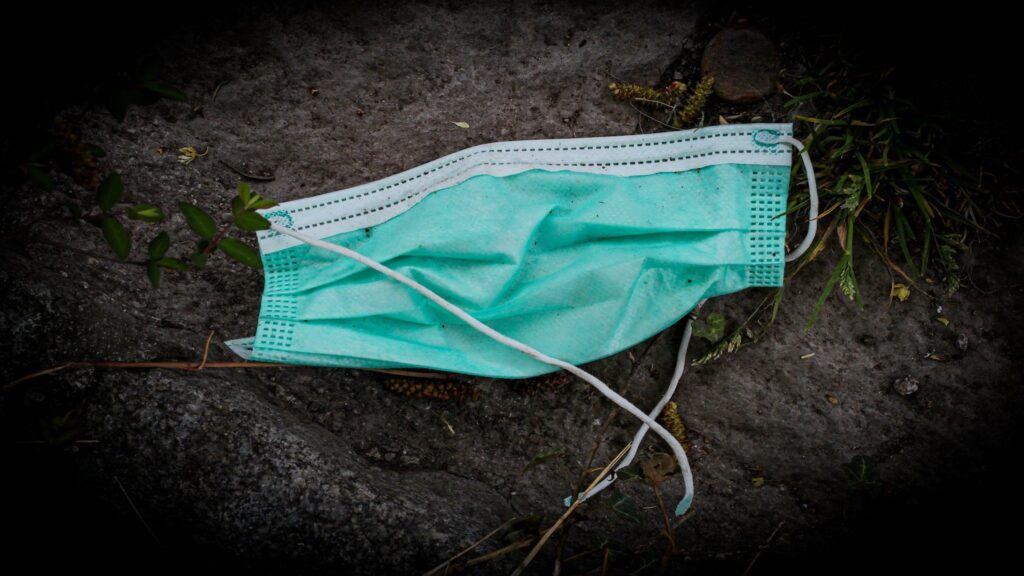
Recent studies estimate that we use an astounding 129 billion face masks globally every month — that is 3 million a minute. Most of them are disposable face masks made from plastic microfibers.
“With increasing reports on inappropriate disposal of masks, it is urgent to recognize this potential environmental threat and prevent it from becoming the next plastic problem,” researchers warn in a comment in the scientific journal Frontiers of Environmental Science & Engineering.
The researchers are Environmental Toxicologist Elvis Genbo Xu from University of Southern Denmark and Professor of Civil and Environmental Engineering Zhiyong Jason Ren from Princeton University.
No guidelines for mask recycling:
Disposable masks are plastic products, that cannot be readily biodegraded but may fragment into smaller plastic particles, namely micro- and nanoplastics that widespread in ecosystems.
The enormous production of disposable masks is on a similar scale as plastic bottles, which is estimated to be 43 billion per month.
However, different from plastic bottles, (of which app. 25 pct. is recycled), there is no official guidance on mask recycle, making it more likely to be disposed of as solid waste, the researchers write.
Greater concern than plastic bags:
If not disposed of for recycling, like other plastic wastes, disposable masks can end up in the environment, freshwater systems, and oceans, where weathering can generate a large number of micro-sized particles (smaller than 5 mm) during a relatively short period (weeks) and further fragment into nanoplastics (smaller than 1 micrometer).
“A newer and bigger concern is that the masks are directly made from microsized plastic fibers (thickness of ~1 to 10 micrometers). When breaking down in the environment, the mask may release more micro-sized plastics, easier and faster than bulk plastics like plastic bags,” the researchers write, continuing:
“Such impacts can be worsened by a new-generation mask, nanomasks, which directly use nano-sized plastic fibers (with a diameter smaller than 1 micrometer) and add a new source of nanoplastic pollution.”
The researchers stress that they do not know how masks contribute to the large number of plastic particles detected in the environment — simply because no data on mask degradation in nature exists.
“But we know that, like other plastic debris, disposable masks may also accumulate and release harmful chemical and biological substances, such as bisphenol A, heavy metals, as well as pathogenic micro-organisms. These may pose indirect adverse impacts on plants, animals and humans,” says Elvis Genbo Xu.
What can we do?
Elvis Genbo Xu and Zhiyong Jason Ren have the following suggestions for dealing with the problem:
- Set up mask-only trash cans for collection and disposal
- consider standardization, guidelines, and strict implementation of waste management for mask wastes
- replace disposable masks with reusable face masks like cotton masks
- consider development of biodegradable disposal masks.
 Recycled plastic is a toxic cocktail: Over 80 chemicals found in a single pellet
Recycled plastic is a toxic cocktail: Over 80 chemicals found in a single pellet Study links micro- and nanoplastics to Parkinson’s and dementia
Study links micro- and nanoplastics to Parkinson’s and dementia Paper drinking straws may be harmful and may not be better for the environment than plastic versions
Paper drinking straws may be harmful and may not be better for the environment than plastic versions Billions of nanoplastics released when microwaving baby food containers
Billions of nanoplastics released when microwaving baby food containers